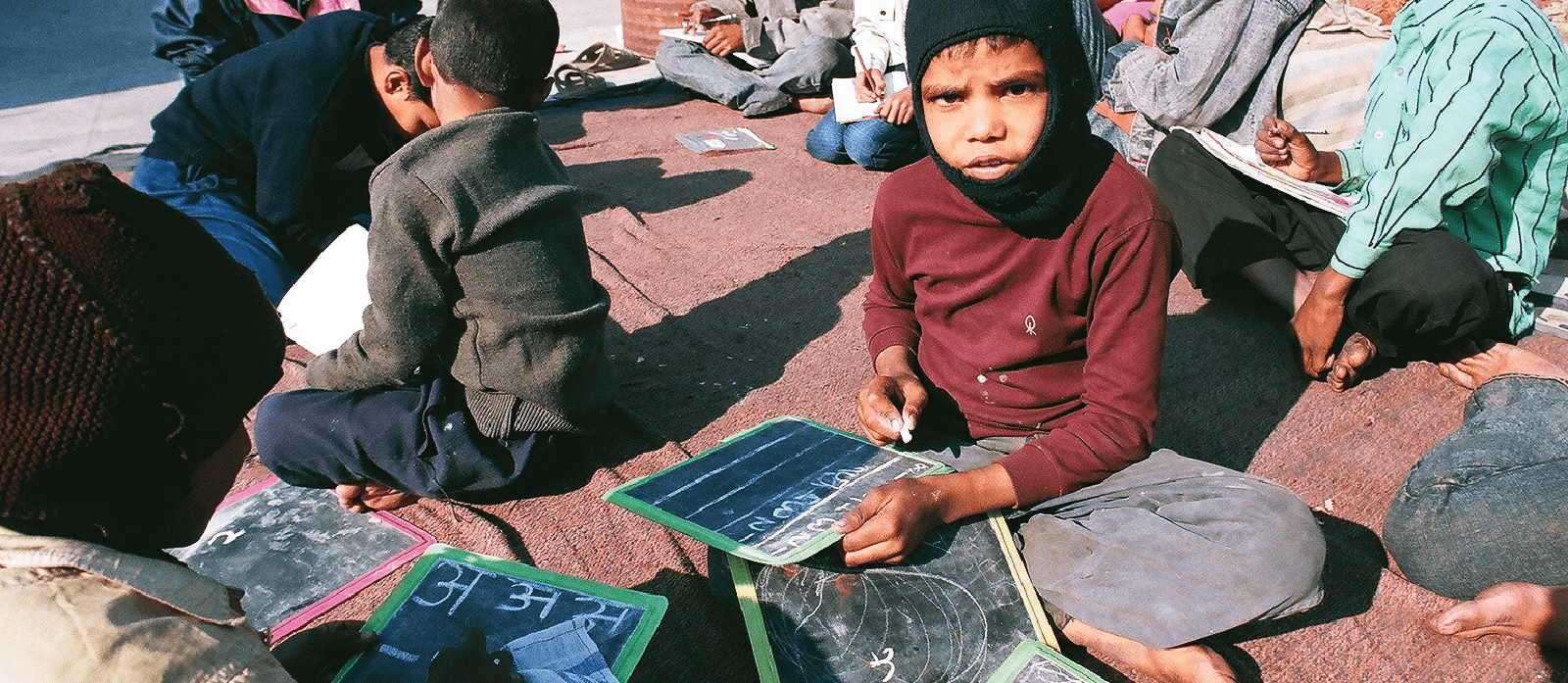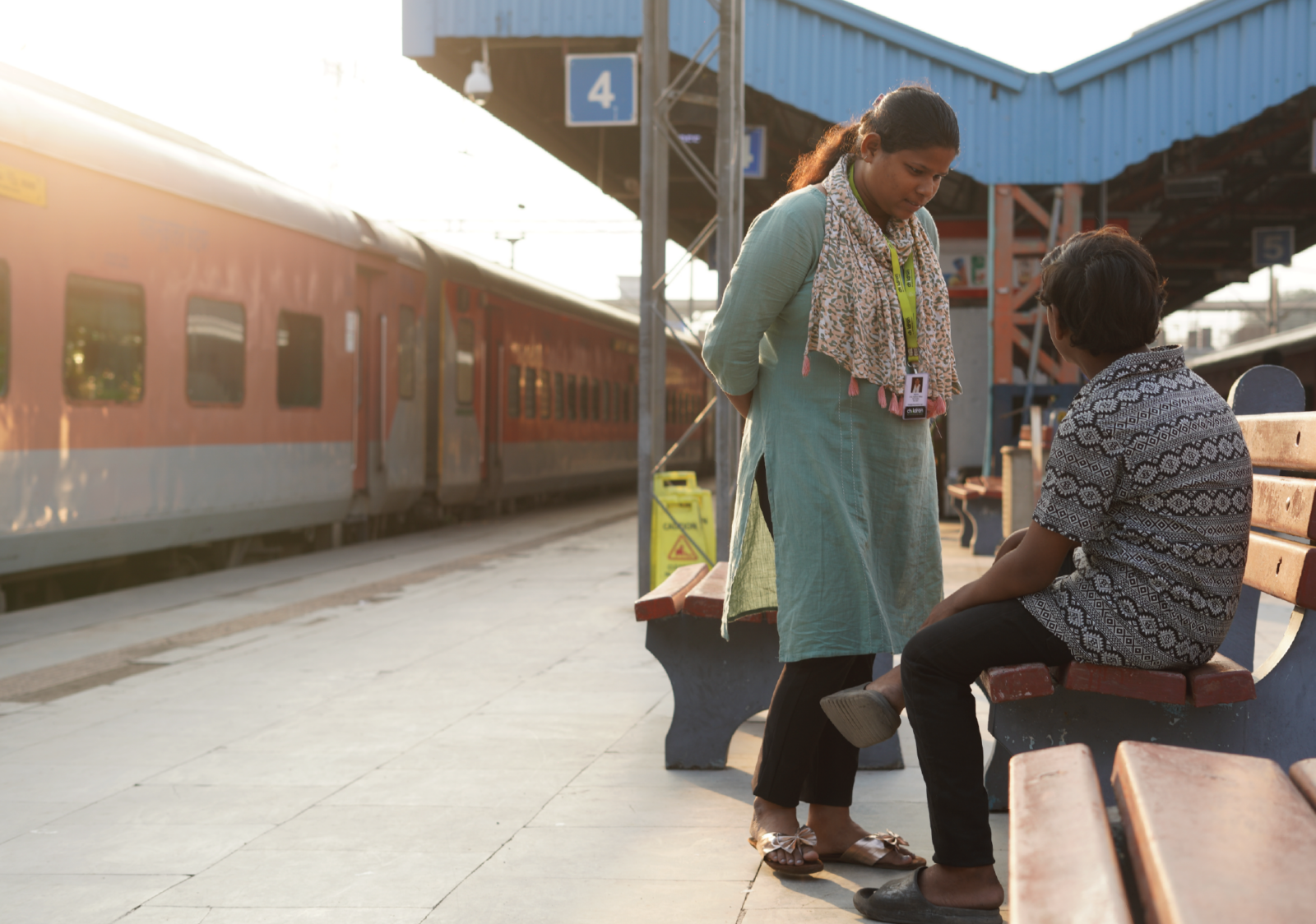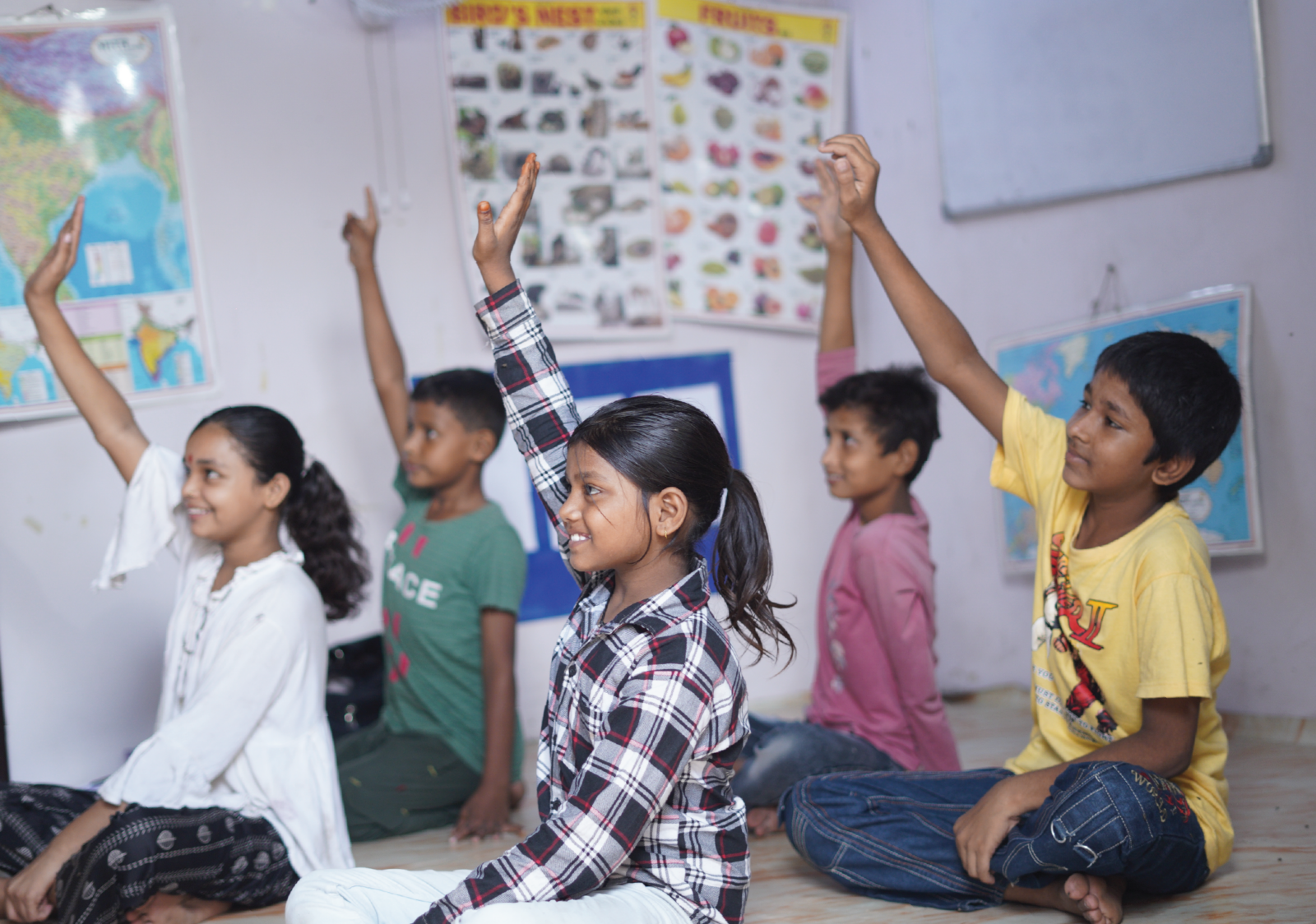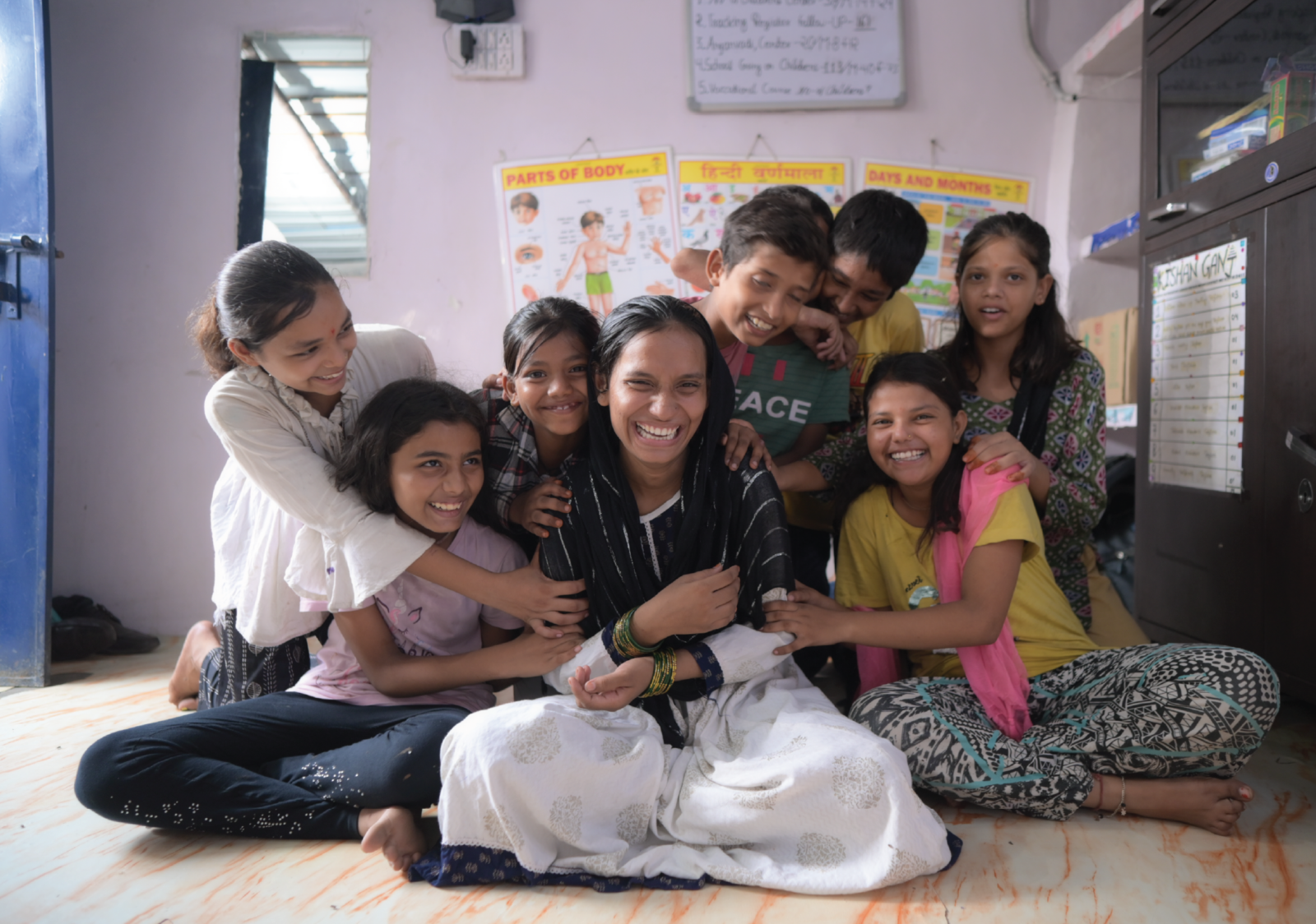The past year was a pivotal one for India with milestone events such as Chandrayaan-3 scripting history and the G20 Summit plotting India as a force to reckon with, globally. With new, revolutionary bills being passed, India was set for a journey of evolution and growth. The economic, geopolitical and legal milestones of India saw wide coverage in national and international news, the one aspect that evaded discourse was an overview of the year for children. What were the glaring concerns that persisted in the past year? What topics about child rights saw impressive improvements? How did children participate in the discourse? Revealing answers to these and other trends about child rights in 2023 is a list of noteworthy headlines that fittingly capture the year gone by.
1. TN Introduces Child Rights and Protection in B.Ed Curriculum
Teachers play an important role in ensuring that the environment at school is safe and harmonious for children’s optimal growth and development. Identifying this need, Tamil Nadu Government introduced Child Rights and Protection as a core paper in the Bachelor of Education (B.Ed) curriculum across 635 colleges in the state. The move set to achieve two essential goals. The primary one being, influencing and enhancing the approach of prospective teachers towards the implementation and safeguarding of child rights. Additionally, this step is expected to contribute to the overall development of a more informed and responsible teaching community in the state.
2.AI Finds a Strong Footing in Education
Global leaders took the stage at the 11th World Innovation Summit for Education (WISE) to address child rehabilitation and the integration of artificial intelligence (AI) in education. Emphasizing the role of AI in personalized learning, skill development, and inclusive education, leaders urged the tech and innovation community to explore novel approaches and collaborations that act as catalysts to the efforts towards child rehabilitation. Overall, leveraging AI to improve the quality and accessibility of education on a global scale was posed as the need of the hour.
3.Children’s Mental Health Takes Center Stage in Goa
Emphasizing the indispensability of school-based counseling in the education system, the Goa State Commission for Protection of Child Rights advocated for the implementation of counseling services in schools to address emotional and psychological challenges. With the aim of creating a conducive learning environment and fostering the overall well-being of students in the state, the commission shed a much-needed spotlight on the role of counseling in promoting mental health within the education system—an exemplar of the positive change of trend.
4. Progress in Curbing Child Marriage Remains Stagnant
A study by the Lancet Global Health Journal revealed that India’s progress in ending child marriage is stagnating, with one in five girls and one in six boys being married. Despite legal reforms and awareness campaigns, the challenge of rising child marriages persists. The findings of the study underscore the need for renewed efforts and targeted interventions to combat child marriage, emphasizing the importance of addressing this issue to ensure the well-being and rights of children in the country.
5. Delhi’s Air Pollution Chokes its Children
In what is now becoming a dreadful, annual event, Delhi’s blanket of smog continued to smother its children even in 2023. Images of children strapped to oxygen cylinders or playing in parks with their mouths covered made it to national headlines. This visual narrative underscored the vulnerability of Delhi’s youth to the harmful consequences of persistent smog and the importance of taking immediate actions to mitigate its effects.
6. Data Protection Law Covers Child Safety
The Data Protection Bill 2023 was lauded for its stellar planning. A part of the bill emphasizes the need for robust provisions to safeguard children’s privacy and protect them from online threats. Children face numerous risks in digital space. Comprehensive legislation is a sure way of protecting children from these risks—a balance of technological advancements and legal safeguards.
7. TN Proposes a Protective Scheme for Children Embroiled in Child Labour
Tamil Nadu Government unveiled a scheme aimed at reducing child labor in the state and focusing on education and rehabilitation. The initiative aimed to identify and assist children engaged in labor, ensuring their enrollment in schools while providing financial support to their families. The comprehensive plan emphasizes a multi-pronged approach to address the root causes of child labor, promoting education and social welfare. This step aligns with efforts to eradicate child labor and enhance the well-being of children in Tamil Nadu, India.
8. Plan Steps to Prevent Assault in Schools Urges a Panel in Goa
The Goa State Commission for Protection of Child Rights urged schools to establish robust mechanisms that identify and address instances of assault on students, with the goal of establishing a safe educational environment. The commission highlighted the significance of proactive measures, including awareness programs and strict policies, to ensure the well-being and safety of children in educational institutions across Goa, India.
9. UN Recognizes Children’s Right to Clean Air
The United Nations Child Rights Committee released a new report that elaborated the devastating effects of poor air quality on children’s rights to life, survival and development. While being the most vulnerable recipients of climate change, children are rarely heard in discourse around climate change. Drawn with the help of several young and influential voices of the world, the UN report outlined new guidelines for governments to follow.
10. India vaccinates 30 million children against measles and rubella in seven months
As India moves towards last mile coverage for MR elimination, catch-up campaigns are being undertaken across the country. In a series of MR campaigns across targeted districts in the states of West Bengal, Delhi, Haryana, Rajasthan, Jharkhand and Mumbai in Maharashtra, over 30 million children were vaccinated with the measles and rubella vaccine from November 2022 to May 2023.
11. Karnataka High Court expresses concern over excessive use of social media by school children
The Karnataka High Court has expressed concerns about the widespread use of social media among youngsters, particularly schoolchildren. The court suggested that it might be in the nation’s best interest to restrict access to social media platforms for this demographic. The idea is to potentially set a threshold age of either 21 or 18, aligning with the age when individuals gain the right to vote.
12. Rising number of underage pregnancies linked to child marriage
Karnataka has reported 28,657 cases of underage pregnancies (below 18 years), with Bengaluru, Belagavi and Vijaypur districts leading the list, according to the Karnataka State Children Rights Protection Commission. Despite the state having more than 56,000 officials dedicated to preventing child marriages, underage pregnancies continue, providing solid proof of the persistence of banned child marriages.
13. Supreme Court orders an optimum menstrual hygiene policy for girls in school
The Supreme Court of India advocated for a “uniform national policy” to ensure the availability of free sanitary pads for all girls in classes 6 to 12, along with the provision of separate toilets for females in all schools. The Supreme Court of India requested the Centre to finalise an optimum menstrual hygiene policy with focus on the distribution of sanitary napkins. The Chief Justice of India, D.Y. Chandrachud, further directed the government to set down a national model for the number of girls toilets per female population across government-aided and residential schools in the country.
14. Law Commission advises against changing age of consent under Pocso Act
The 22nd Law Commission has advised the government not to tinker with the existing minimum age of consent under the Protection of Children from Sexual Offences (Pocso) Act. The panel in its report to the Union law ministry suggested introducing guided judicial discretion in the matter of sentencing in cases involving tacit approval of children in the 16-18 age bracket. The development came amid a swirling debate over the age of consent under Pocso. In the past few years, a number of high courts have expressed concern that consensual relationships between teenagers were getting criminalised under the stringent 2012 law meant to protect children from sexual violence.
15. India removed from UNSG report on impact of armed conflict on children
United Nations Secretary-General Antonio Guterres has removed India from his annual report on the impact of armed conflict on children, citing “measures taken by the government to better protect” them.
16. The National Human Rights Commission proposes recommendations to combat online child sexual abuse material
The National Human Rights Commission has recommended that the phrase ‘child pornography’ in the Pocso Act should be replaced with Child Sexual Abuse Material (CSAM). It has also recommended that the term ‘sexually explicit’ be defined under the IT Act to ensure prompt identification and removal of online CSAM. The NHRC has sought that the definition of ‘intermediary’, under the IT Act, should include Virtual Private Network (VPN) service providers, Virtual Private Servers (VPS) and cloud service providers to avoid ambiguity and reinforce compliance of CSAM-related provisions of the Act.
17. “Poshan bhi padhai bhi” launched in line with the National Education Policy (NEP)
With an emphasis on early childhood education was launched “Poshan bhi padhai bhi”, foundational learning modules for children aged 3 to 6 years enrolled in anganwadi centers. Training Anganwadi workers is a key tenant of this programme, including capacity-building through a 3-day in person training, follow up refresher training, fresh Teaching Learning Material (TLM) including activity books and toys, and a workshop on usage and creation of toys, expanding the scope of the centres beyond nutrition.
18. Teachers against Vaping, write to the Ministry of Education
Teachers from leading schools in India have written to the Ministry of Education to raise awareness about the adverse effects of electronic cigarettes, as it would hinder the development of children in reaching their full potential.
19. Kartik Verma from Bhadohi village emerges as a global voice on climate change
Kartik Verma, has grown into a global voice on the issue. Founder of the ‘Knowledge for Nature’ movement, Kartik took up the cause of child rights vis-à-vis environmental issues. So far, his impactful work has reached over 4,000 children and youths across 130 plus schools of India. Appointed as a member of the steering committee for the Children and Youth Major Group to the UN Environment Programme, he currently serves as a child advisor to the UN Committee on the Rights of the Child for General Comment.
He has also voiced the cause on many international platforms including the 94th Session Committee on the Rights of Child in UN Geneva.
20. Operation Muskaan in Maharashtra continues to reunite missing children with their families
The Maharashtra Police is successfully working on ‘Operation Muskan’ since 2015 under which 35,000 to 40,000 missing children were reunited with their parents. Operation ‘Muskan’ also known as Operation ‘smile’ is an initiative by the Ministry of Home Affairs. It was launched in 2015 with the purpose of rescuing and rehabilitation of missing children.
21. 11 Children Receive PM Rashtriya Bal Puraskar
A Mallakhamb player, a singer suffering from bone disorder and a YouTuber were among 11 children who received Pradhan Mantri Rashtriya Bal Puraskar, 2023 by President Droupadi Murmu. Among the awardees was Aadithya Suresh who even after being diagnosed with a bone disorder since birth (osteogenesis imperfecta) transformed himself into a singer.
22. Himachal Pradesh CM launches Sukh-Ashray Yojana for orphans and special needs children
The Mukhyamantri Sukh Ashraya Yojana aims to provide comprehensive aid to orphans, disabled children, destitute women, and elderly individuals in the State. “In a first-of-its-kind initiative in the country, my government took a decision to adopt the orphans, the specially-abled children as the ‘Children of the State’ and work for their upliftment and well-being, giving them all parental care, besides taking care of the destitute women and elderly who have no one to look after,” he said.
23. One Nation One Helpline – CHILDLINE & 112 now merge
In a first, the Ministry of Women and Child Development (WCD) has decided to do away with NGOs collaborating to run the successful Childline emergency counselling and distress helpline for children, established in 1995. According to Ministry officials, the merger is a part of the broader ‘One Nation One Helpline’ initiative. In the first phase, the Ministry plans to merge the Childline 1098 service with the Emergency Response Support System (ERSS) number 112 in nine States and Union Territories — Andhra Pradesh, Arunachal Pradesh, Bihar, Gujarat, Goa, Mizoram, Ladakh, Puducherry, and Dadra and Nagar Haveli and Daman and Diu.







